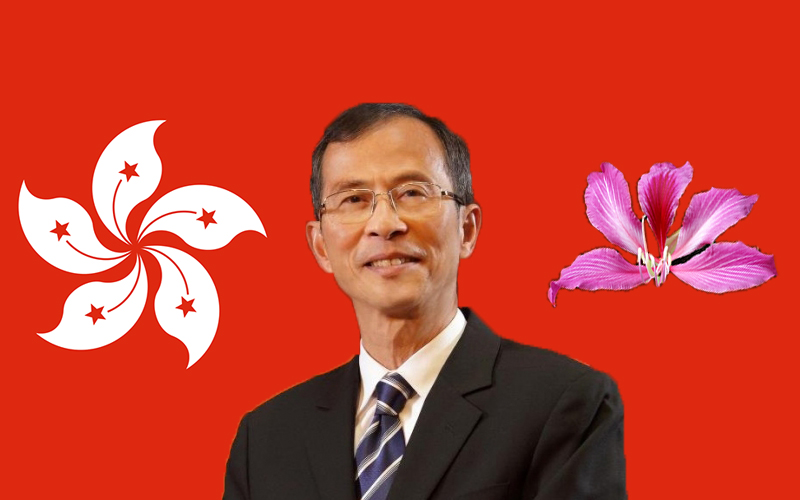Legislative Council President Jasper Tsang says that the incorrect Chinese characters for “bauhinia” were possibly added to the Basic Law as a “de-colonisation” tactic.
This is a sign that Hong Kong’s national flower and all it represents, will deteriorate and wither, he says in his column in the am730 newspaper.
In the column, published on Monday, Tsang wrote that although the regional flag and emblem clearly have a bauhinia on them, the Chinese characters for “bauhinia” that appear in the Basic Law – 紫荊花 – are not correct and in fact refer to the wrong flower.
“The Basic Law states that the image on the regional flag and emblem is Cercis chinensis, but not Bauhinia blakeana, maybe this is because of de-colonisation; but the regional flag and emblem of the SAR are not in accordance with the Basic Law.”

Tsang said the Chinese name for Bauhinia blakeana – 洋紫荊 which means “Cercis chinensis from overseas” – could be mistaken as Cercis chinensis, what is commonly known as Chinese redbud. This looks slightly different, so it was labelled as being “from overseas.”
However, Tsang said Bauhinia blakeana is a local plant and maybe the Chinese name of the plant should be “Hong Kong bauhinia.”
Tsang said that Hong Kong people appreciate the bauhinia, not because it has “from overseas” in its name, but because it can adapt to Hong Kong’s soil and climate and can blossom here.
“No matter how you change its name, it is still the bauhinia known and liked by Hong Kong people,” he wrote, “but if the environment and conditions for it to grow are destroyed, it will deteriorate, be outshone and withered.”
In September, former Beijing official Chen Zuo’er said that the failure of Hong Kong’s “de-colonisation” is the cause of the city’s social and economic problems.
Recently, a group of local scientists launched a crowdfunding project to map the genetic makeup of the bauhinia flower.
